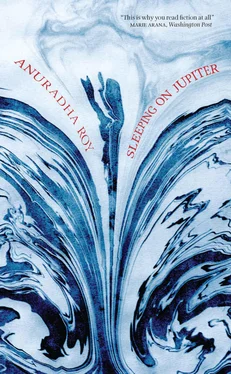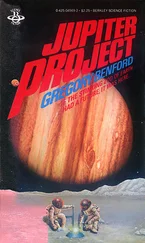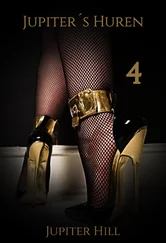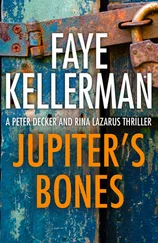Before she could ask another of her questions, two tourists soaked in seawater came up to the stall panting. “Hot tea! Hot tea is what we need!” one of them cried out.
“Arre Babu! Look what you have done to your clothes!” Johnny Toppo’s transformation took no more than a second. He sounded like a mother delighted by the waywardness of her toddlers. “What kind of tea? With ginger? Or with lemon? With sugar or without?” He turned away from the girl and produced the genial chuckle all his customers were given. He stirred his pot and started humming to himself. The tourists said, “What are you singing? Sing it aloud.”
“Oh, it’s nothing!” Johnny Toppo’s tone of practised cordiality had come back. “Just a folksong. That’s all I brought with me when I came here to Jarmuli. A few songs and the clothes on my back.” He began to sing again.
Nomi sat on the sand a short distance away, listening. It was a voice from long ago, a voice that contained grains of sand, winds from the sea. Why hadn’t she heard it as clearly before?
The tourists sat on the tea-bench. One of them said to the other, “Did I bring you to the right place or not? Have you ever heard anything so beautiful?” The man turned to Johnny Toppo. “Bhai, I want to record you. I’ll record you, I’ll sell your songs, I’ll make you a star. And I’ll make me some money.”
Johnny Toppo stirred his pot.“People like me, our dreams were beaten out of us long ago. I have no time for stars, I just want a patch of ground to sleep on, a bit of cloth to wear and my next meal.”
The man paid up, saying, “We can do something — folk songs are in fashion now!” As they walked away he smiled and slapped his friend’s shoulder. “You’ll buy his songs or not?”
Johnny Toppo had heard many such conversations. He turned his back to them and scraped his saucepan clean, swilled it out with water from the iron bucket at hand. Nomi sat watching, and before she fully understood what she was saying, the words were out of her mouth and once they had started she could not stop them.
“Once there was a woman called Shabari and she ran away from home on her wedding day. She lived in deep forest after that, in a hermit’s ashram, serving the hermit.”
Johnny Toppo’s head jerked violently and the saucepan fell to the sand. A shudder seemed to go through him. When he bent to pick the pan up he looked old and creaky. “Do you want more tea? I’ve work to do,” he said. He pulled the cloth tight around his neck. He picked up a packet of beeris. He looked for his matches. His hands were trembling when he lit up.
“When the hermit was on his deathbed, he said in a sad voice to Shabari that he had spent all his life serving God, yet was leaving life without a glimpse of Him. But that would not be her fate, he said. One day God would appear before her, so she must be ready. After this, the hermit died.”
Johnny Toppo said, “So what’s the moral, eh? Do I look like a child who needs fairy tales?”
Nomi carried on, talking softly, as if to herself. “Shabari understood his last words to mean that she would have to be prepared. She would have to wait for God in the very same place, otherwise how would He find her? Shabari was a simple-minded woman. She waited and she waited, all her life.”
Johnny Toppo stormed out from behind the tea stall towards Nomi. “I thought you only looked crazy, with all these beads and rings and that madwoman hair.” He let out a jet of spittle that shone on the sand like a blob of jelly. “That screw-loose gardener there, see? He’s the one you’re looking for! Ask him if he remembers anything.”
He went back to his stall and turned off his stove. He had a trunk below the barrow into which he locked everything each evening and began to stack his pots and pans and cups and jars, pell mell, cursing as a few of the terracotta cups broke inside the trunk. He muttered furiously to himself as he packed up. “All words and no money: some days start bad and get worse.”
*
Nomi sat alone in a car, watching the suburbs of Jarmuli go by. She stared out as if she could not afford to miss the landscape for a minute, even though the suburbs of Jarmuli looked much like those of any other town. Boxy houses on either side of the road, their verandahs curtained by wet clothes on lines. The few trees covered in dust. Ragged oleander hedges with drooping pink flowers. Grocery stalls garlanded with foil packs of chips at street corners. Here she was far away from the sea, the temples, the tourists, the radiant, suspended disbelief of the beach.
Johnny Toppo had not wanted to help her. She had been overtaken by a staggering sense of recognition, of joy — he was not dead after all, he was alive and she had found him! But he had spat at her and turned away. She could handle that, she would feel nothing, she was used to having doors slammed in her face. And I might be wrong, she told herself, many men have scars on their necks and everyone asks for morals of stories. What makes me so sure it was him? A memory she thought she had lost came back to her, its every feature sharp: Jugnu unloading the manure truck at the ashram. First he would spade the manure into a big metal basin. Then he would lift it to his head. He would walk with it on his head to the manure pile near the shed. Tip it out, come back with the empty basin, start the whole process again. He was bent under the stinking manure. His thin, bare body was lean and hard as wood. He spoke to nobody. The remote look he had then was on Johnny Toppo’s face today. Neither of them wanted to have anything to do with other people. Who was she to try and make a man remember what he wanted to forget?
A sudden exhaustion permeated every bone, muscle, and tissue in her body. It was futile. She should never have come. The roads through the town grew narrower and bumpier. Here, only a short distance away from the broad promenade along the sea, trucks bore down on them from the opposite side, and dented, rattling tempos scraped past the car. She could no longer smell the salt and fish. Exhaust fumes made her eyes sting. She asked the driver to switch on the air-conditioning and soon her window was coated with a film of grey dust. She stared at the houses and street markets they were passing, hoping, as she had on the first drive from Jarmuli station, for a moment of recognition.
After a while, the distance between the houses grew until there were no houses at all. Beside her on the seat she had a map, but like most maps it seemed to bear no relation to what she saw. The driver made a sharp turn towards the highway. Here, the road outside corresponded with the map in one detail at least — as they drove, she caught glimpses of the sea across the road, beyond a stretch of scrub and trees. She did not know for sure if they were going in the right direction, but she leaned over and said to the driver, “Take a left at the crossroads.”
She picked up the map again. It was wrinkled now, frayed at the folds. She had scribbled on it, drawn arrows. There was nothing to connect the represented with the real or the present with the past, not if you went by the road names. But she knew from her research that the place she was looking for was somewhere on the Kanakot — Jarmuli highway.
The sun hung orange between branches and leaves by the time her driver stopped the car two hours later. She had left Jarmuli too late, she realised, not knowing the drive would take so long. Long shadows of trees already barcoded the road, nightfall came swiftly here. She felt a prickle of fear at her neck, wanted to lock the doors of the car, turn back without getting out. They were at a pair of metal gates. The driver looked over his shoulder, despite herself she nodded, and he turned the engine off.
Читать дальше












